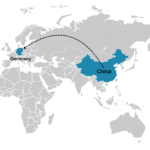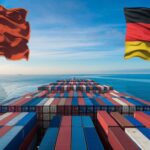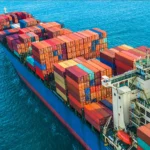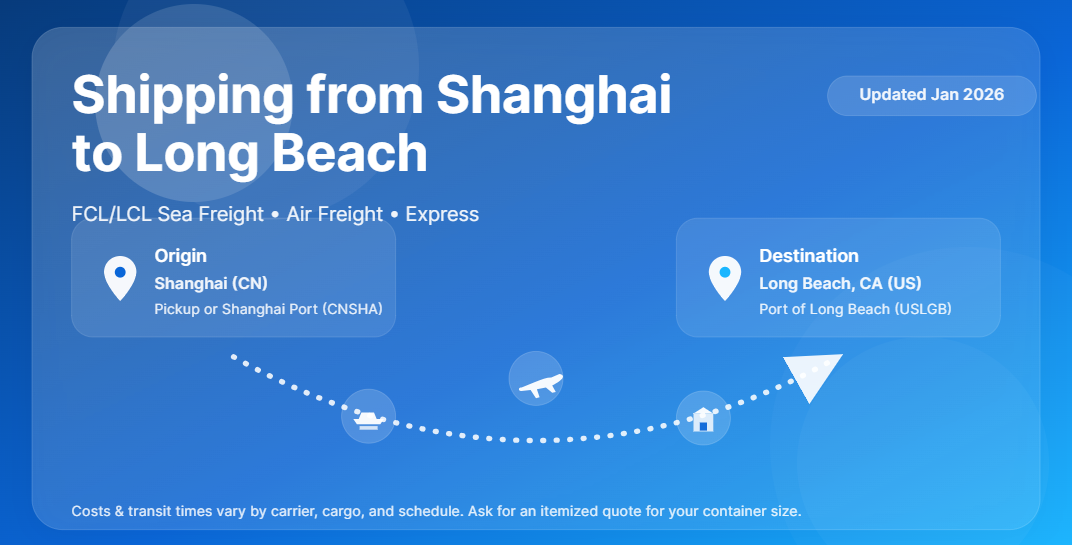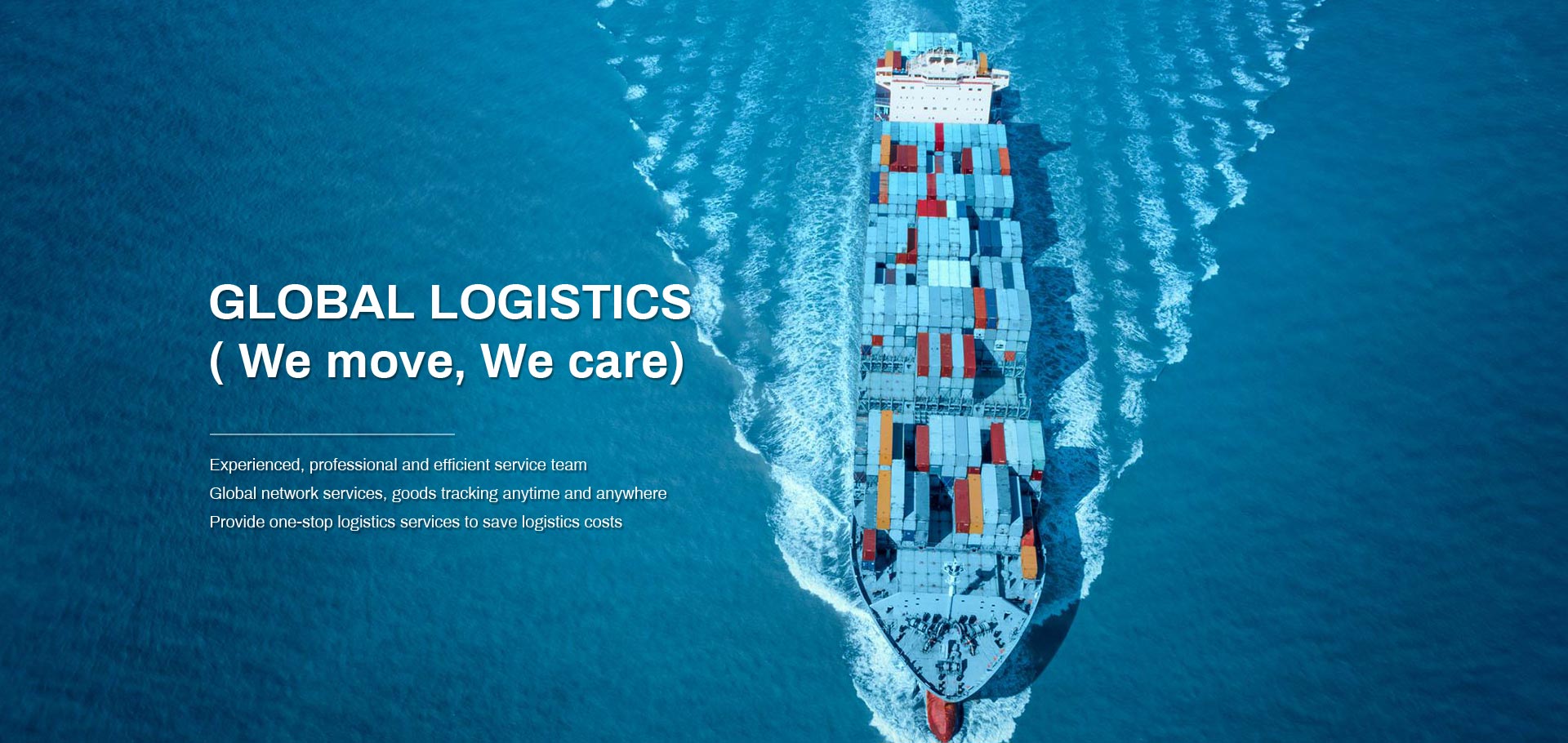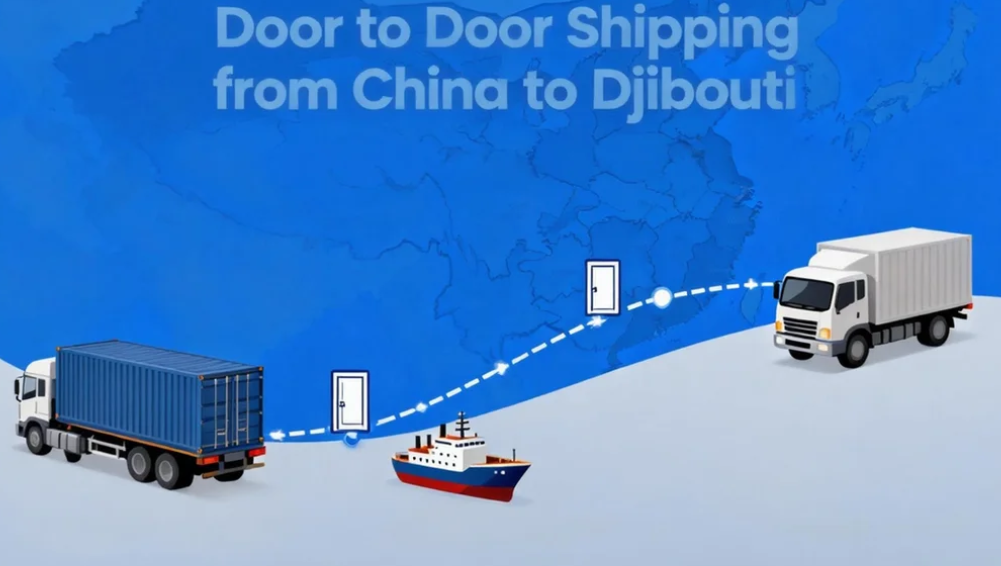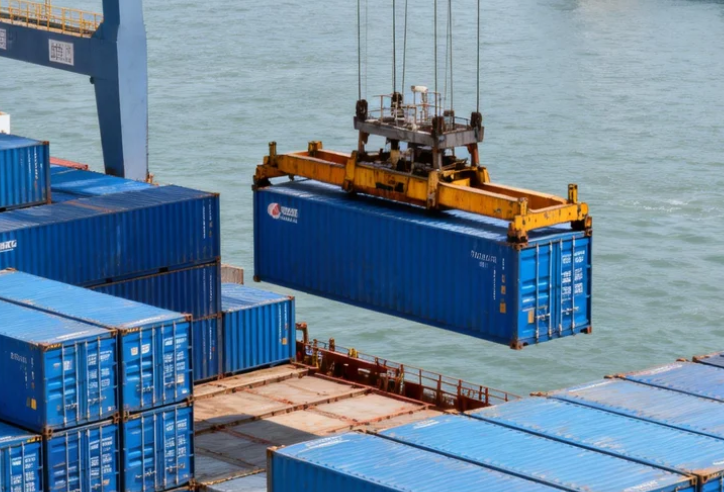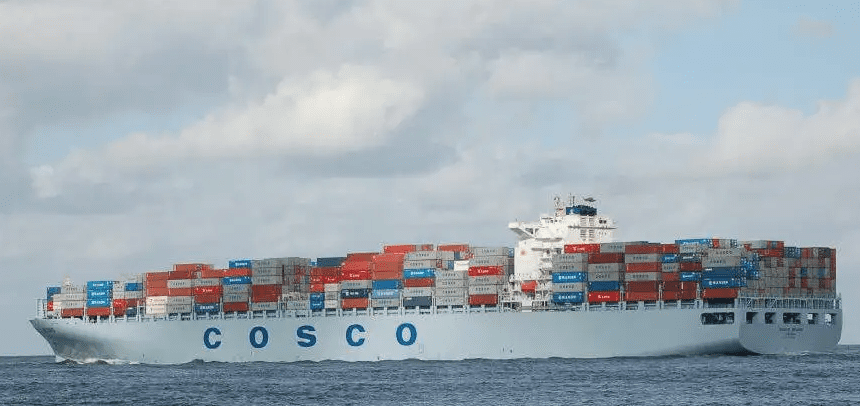Are you curious about the shipping rates from China to Germany and how they can impact your business? In this comprehensive guide, we will explore the key factors affecting shipping costs, compare the expenses for 20ft vs 40ft containers, and break down additional charges that may arise. Furthermore, we will share valuable tips on how to save money on your shipments and guide you in selecting a reliable partner for your shipping needs. Join us as we delve into the complexities of international shipping and discover efficient solutions with Dantful International Logistics.

Key Factors Affecting Shipping Costs from China to Germany
When evaluating shipping rates from China to Germany, shippers must consider a range of factors that influence the total cost. Understanding these key components is essential for importers to make informed decisions and optimize their logistics budgets.
Mode of Transport
The choice between ocean freight, air freight, and rail freight has the most significant impact on shipping costs.- Ocean freight is usually the most cost-effective for bulk cargo.
- Air freight is faster but comes at a premium.
- Rail freight offers a balance between speed and cost, especially for shipments to inland cities in Germany.
Container Size and Type
Rates vary depending on whether you ship using a 20ft or 40ft container, and whether the container is standard, high-cube, or requires special handling (such as OOG Freight for oversized goods).Port of Origin and Destination
Shipping costs differ based on the specific Chinese port (e.g., Shanghai, Shenzhen, Ningbo) and the German port (Hamburg, Bremerhaven, Duisburg for rail freight). Proximity to major ports can decrease inland transportation costs. To explore more about European shipping routes and port options, see Sea Freight from China to Europe: Best Routes, Costs, and How to Avoid Delays.Cargo Volume and Weight
Full Container Load (FCL) and Less than Container Load (LCL) rates are calculated differently. FCL is often more cost-effective for larger shipments, while LCL is suitable for smaller volumes but may incur higher per-unit costs. For a detailed discussion on choosing between LCL and FCL, you can refer to LCL vs FCL Shipping: How to Choose the Right Option for Small Cargo.Peak Season Surcharges
Global demand fluctuations impact rates. The months leading up to Chinese New Year and the holiday season (August–October) typically see surcharges due to increased demand for shipping from China.Fuel Prices and Bunker Adjustment Factor (BAF)
Changes in global oil prices directly affect the BAF, influencing the overall freight charges.Customs Duties and Taxes
Import duties, VAT, and other customs-related costs in Germany are separate from shipping rates but crucial to consider in the total landed cost. If you’re shipping to other countries, see more on import procedures from China to Poland.Additional Services
Door to door delivery, insurance, customs clearance, and warehouse services can add to the total cost but also reduce risk and streamline logistics.Carrier and Freight Forwarder Selection
Different carriers and freight forwarders (such as Dantful International Logistics) offer varying pricing based on service quality, route optimization, and contract terms. For specialized services, consider freight forwarder from China to Germany and shipping agent from China to Germany.
Comparing Costs for 20ft vs 40ft Containers (2025)
When shipping goods from China to Germany, importers often need to decide between 20ft and 40ft containers. In 2025, market forecasts and recent shipping rate trends provide the following estimates for full container loads:
| Route | 20ft Container (FCL) | 40ft Container (FCL) | Transit Time (Days) |
|---|---|---|---|
| Shanghai – Hamburg (Ocean) | $2,000 – $2,500 | $3,800 – $4,500 | 28–35 |
| Shenzhen – Bremerhaven (Ocean) | $2,100 – $2,600 | $3,900 – $4,600 | 30–37 |
| Ningbo – Hamburg (Ocean) | $2,050 – $2,550 | $3,850 – $4,550 | 28–34 |
| Yiwu – Duisburg (Rail) | $3,100 – $3,700 | $5,400 – $6,200 | 18–22 |
Key Observations:
- 40ft containers typically cost about 1.7 to 1.8 times a 20ft container, not double. This makes 40ft containers more cost-effective for higher volumes.
- Rail freight is faster than ocean but comes at a higher cost, suitable for time-sensitive goods.
- Additional surcharges (such as peak season fees, fuel surcharges, and port handling fees) may apply. It is recommended to consult with your logistics provider for an accurate, up-to-date quote.
For more market insights and historic trends, you can check container shipping costs from China to Germany.
Dantful International Logistics offers competitive container rates, transparent pricing, and tailored shipping solutions to ensure your cargo reaches Germany efficiently and cost-effectively. Contact us for a customized quotation based on your specific shipping requirements.
By understanding these factors and comparing container options, importers can better plan their shipments and control their shipping rates from China to Germany. For up-to-date rates and dedicated support, Dantful International Logistics stands as a reliable partner in global trade.
Read More:
- Shipping From China To Netherlands
- Shipping From China To Spain
- Shipping From China To Germany
- Shipping From China To France
- Shipping From China to Italy
- Shipping From China To Poland
- Shipping From China to United Kingdom
Breakdown of Other Charges
When shipping from China to Germany, understanding the full spectrum of costs is essential for accurate budgeting and cost control. Beyond the base shipping rate for your ocean, air, or rail freight, there are numerous additional charges that can impact your total expenses. Here is a comprehensive breakdown of the most common extra charges you may encounter:
| Charge Type | Description | Typical Range (USD) | Applicability |
|---|---|---|---|
| Origin Charges | Fees at the Chinese port, including cargo handling, documentation, and export clearance | $100–$500 | All shipments |
| Destination Charges | Fees at German ports for unloading, terminal handling, and documentation | €150–€400 | All shipments |
| Customs Clearance | Cost for customs declaration and processing in both countries | $100–$300 (per shipment) | All shipments |
| Duties & Taxes | Import duties, VAT, and other taxes imposed by German authorities | Varies (often 19% VAT) | All shipments |
| Insurance | Cargo insurance to protect against loss or damage during transit | 0.1–0.5% of cargo value | Optional but recommended |
| Storage Fees | Charges for storing containers or goods at port beyond the free period | $20–$50/day | If delays occur |
| Demurrage/Detention | Penalties for late container return or pickup | $50–$150/day | If deadlines missed |
| Delivery Charges | Trucking or rail fees for door-to-door delivery in Germany | €100–€600 | If door delivery needed |
| Documentation Fees | Charges for Bill of Lading, Certificates of Origin, and other paperwork | $50–$150 | All shipments |
| Peak Season Surcharges | Additional fees during high demand periods (e.g., Q4) | $200–$500 | Seasonal |
| Fuel Surcharges | Fluctuating charges due to fuel price changes | Varies | Common on all shipments |
Note: Actual charges can vary depending on the specific route, carrier, and service level. For the most accurate and up-to-date quote, contact your freight forwarder.
With Dantful International Logistics, we ensure transparent cost structures and help you anticipate every possible charge so there are no surprises in your shipping process. For those specifically interested in minimizing costs to Germany, see our detailed guide on container shipping costs from China to Germany.
How to Save Money on Shipping from China to Germany
Shipping goods from China to Germany can be a significant investment, but there are effective strategies to control and reduce your logistics costs. Here are expert tips to help you save money while ensuring reliable delivery:
1. Choose the Most Cost-Effective Shipping Method
- Ocean Freight is generally the most economical for large, heavy shipments.
- Rail Freight offers a balance between speed and cost for certain locations in Europe. You can also review insights on Rail Service From China to Europe.
- Air Freight is fastest but most expensive—use it for high-value, time-sensitive items only.
2. Plan Ahead and Book Early
- Booking your shipment in advance allows you to secure better rates, especially before peak seasons when prices rise due to high demand.
- Early planning also reduces the risk of expensive last-minute air shipments.
3. Optimize Container Utilization
- Maximize the use of space in 20ft and 40ft containers to lower the cost per unit. If you’re curious about container pricing, check the latest container shipping costs from China to Germany.
- Consider LCL (Less than Container Load) shipping for smaller volumes to avoid paying for unused space. For a comparison between LCL and FCL shipping, see LCL vs FCL Shipping: How to Choose the Right Option for Small Cargo.
4. Consolidate Shipments
- Consolidated Freight allows you to combine your smaller shipments with those from other shippers, sharing container costs and reducing fees.
5. Negotiate with Your Freight Forwarder
- Work closely with a trusted provider like Dantful International Logistics to negotiate the best rates, especially for regular or high-volume shipments. For specifics on professional support for this route, you might refer to freight forwarder from China to Germany.
6. Be Aware of Hidden Fees
- Understand all potential additional charges (see table above) and plan accordingly.
- Avoid unnecessary storage and detention fees by arranging timely pickup and delivery.
7. Use Door-to-Door Services
- Comprehensive solutions, such as door-to-door shipping from China to Germany, can sometimes reduce total costs by bundling services and avoiding delays. For more information about these end-to-end solutions, explore our overview of Door-to-door shipping services.
8. Leverage Technology
- Use tracking and management tools to monitor your shipments, avoiding miscommunication or costly mistakes.
9. Consider Insurance Wisely
- While insurance is an extra cost, it can save you from significant financial loss if your goods are damaged or lost in transit. Discover your best options in our Insurance Services section.
10. Select a Reliable Freight Forwarder
- Partnering with a reputable and experienced logistics provider like Dantful International Logistics ensures professional guidance, cost control, and risk management throughout your shipping process.
Contact Dantful International Logistics Today
Whether you need ocean freight, air freight, rail freight, or specialized solutions like Amazon FBA shipping, warehousing, customs clearance, or door-to-door delivery, Dantful provides tailored, cost-effective, and high-quality logistics services for your global trade with China and Germany.
Choosing the Reliable Partner for Your Shipping Needs
When importing goods from China to Germany, selecting a reliable freight forwarding partner is essential to ensure your shipments are delivered safely, on time, and within budget. There are several critical criteria to consider when evaluating potential logistics partners:
Experience and Expertise: Look for a freight forwarder with extensive experience in handling shipments between China and Germany. An established company will be knowledgeable in navigating complex international trade regulations, customs clearance procedures, and documentation requirements.
Service Portfolio: Your chosen partner should offer a comprehensive range of services, including ocean freight, air freight, rail freight, warehouse solutions, customs clearance, insurance, and door-to-door delivery. This variety ensures you can select the best shipping mode based on your cargo type, urgency, and budget.
Network and Local Presence: A strong global network, especially in major Chinese and German ports such as Shanghai, Shenzhen, Hamburg, and Bremerhaven, enables smoother cargo handling and faster resolution of issues that may arise during transit.
Transparent Pricing: The best freight forwarders provide clear, upfront quotations covering all expected fees, including surcharges, handling charges, and customs duties. This transparency helps avoid unexpected costs and allows for accurate budget planning. For guidance on freight rates and what to expect, see container shipping costs from China to Germany.
Customer Support and Communication: Effective communication is crucial in international shipping. Reliable partners keep you informed at every step, offering real-time shipment tracking and prompt responses to your questions or concerns.
Reputation and Accreditation: Check for memberships in recognized industry associations (such as FIATA, WCA, or local chambers of commerce) and read client testimonials or case studies to gauge past performance.
Why Choose Dantful International Logistics
Dantful International Logistics stands out as a highly professional, cost-effective, and high-quality one-stop international logistics service provider for global traders shipping from China to Germany. Here’s why Dantful is the preferred logistics partner:
Comprehensive One-Stop Shipping Solutions
- Ocean Freight: Full Container Load (FCL), Less than Container Load (LCL), and specialized services such as OOG Freight, Consolidated Freight, and Breakbulk Freight.
- Air Freight: Fast and secure solutions for urgent shipments.
- Rail Freight: Cost-effective and eco-friendly option for shipments between China and Germany via the China-Europe Railway.
- Amazon FBA: Dedicated services for e-commerce sellers, including labeling, repacking, and direct delivery to Amazon warehouses in Germany. Learn more about AMAZON FBA – Dantful.
- Warehouse and Distribution: Reliable warehousing in major Chinese and German cities, enabling efficient inventory management and order fulfillment.
- Customs Clearance: In-house customs experts minimize delays and ensure compliance with regulations in both China and Germany.
- Insurance: Comprehensive cargo insurance to protect you against unforeseen events.
- Door-to-Door: Hassle-free pickup and final delivery service, saving you time and reducing coordination effort. Explore our door-to-door shipping from China to Germany for a seamless experience.
Expertise and Efficiency
- Over a decade of experience in China-Europe logistics.
- Dedicated teams for route optimization, documentation, and customer support.
- Strong partnerships with major carriers, airlines, and railway operators.
Transparent and Competitive Pricing
- Dantful provides clear, itemized quotes—no hidden fees.
- Consistently competitive rates for shipping from China to Germany, with flexible options for different shipment sizes and requirements.
Customer-Centric Approach
- Multilingual support teams offer proactive updates and 24/7 assistance.
- Advanced online tracking tools for shipment visibility at every stage.
- Customized solutions tailored to your business needs and supply chain strategy.
Trusted by Global Traders
- Accredited by leading industry associations.
- Proven track record with thousands of successful shipments annually.
- Excellent client feedback for reliability, transparency, and value.
Dantful International Logistics is your trusted partner for efficient, secure, and cost-effective freight forwarding from China to Germany.
FQAs
Q1:What is the cheapest way to ship goods from China to Germany?
A1:The cheapest shipping method is typically ocean freight (LCL or FCL), especially for large and heavy shipments. Rail freight offers a faster alternative at a competitive rate for certain cargoes, while air freight is best for urgent or high-value goods, though it is more expensive.
Q2:What documents are needed for shipping from China to Germany?
A2:Key documents include the Bill of Lading, Commercial Invoice, Packing List, Certificate of Origin, and any relevant certificates for restricted or regulated goods.
Q3:Do you provide door-to-door delivery?
A3:Absolutely. Dantful International Logistics specializes in seamless door-to-door shipping, handling every stage from pickup at the Chinese supplier’s warehouse to delivery at your location in Germany.

Young Chiu is a seasoned logistics expert with over 15 years of experience in international freight forwarding and supply chain management. As CEO of Dantful International Logistics, Young is dedicated to providing valuable insights and practical advice to businesses navigating the complexities of global shipping.




